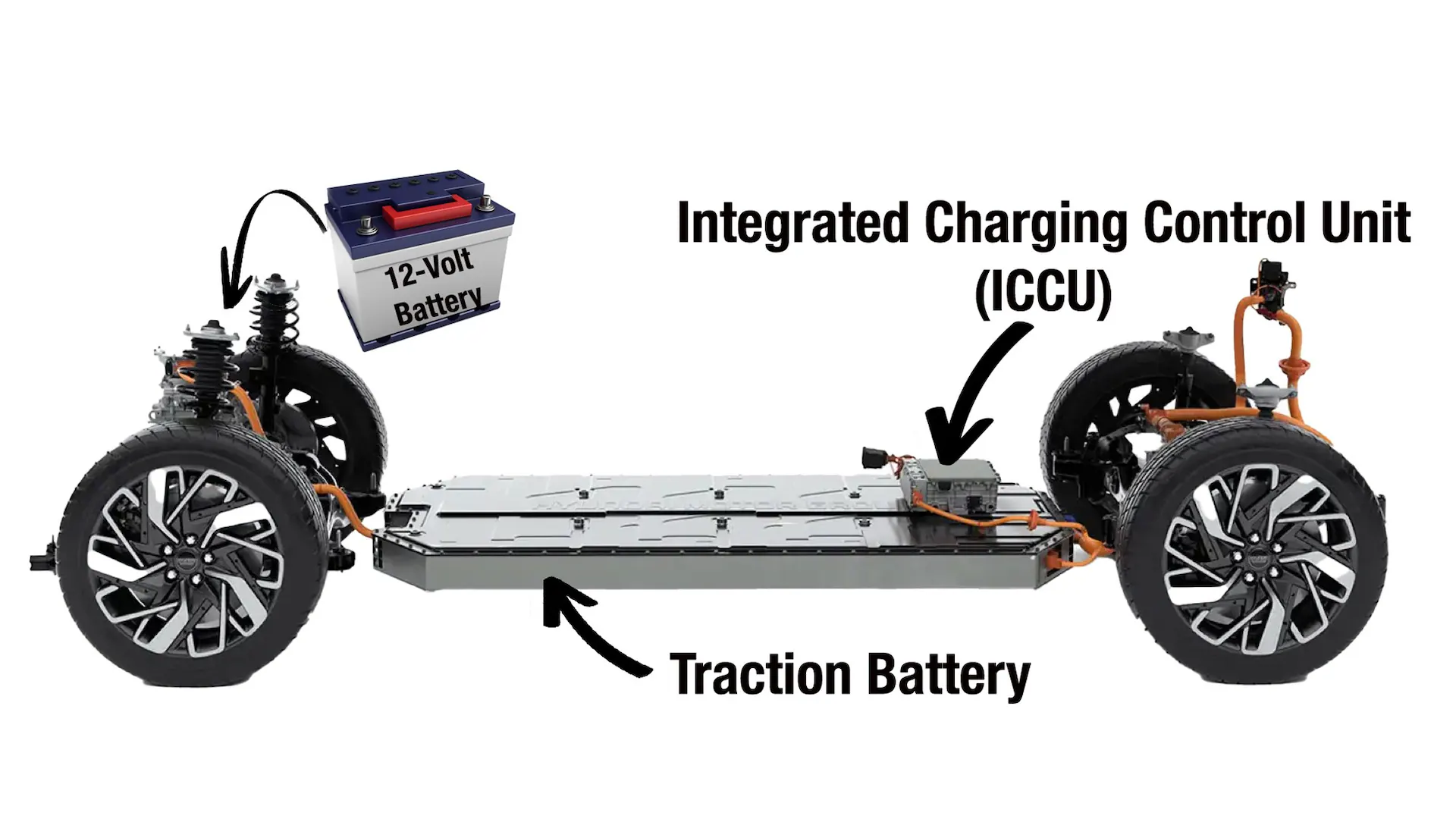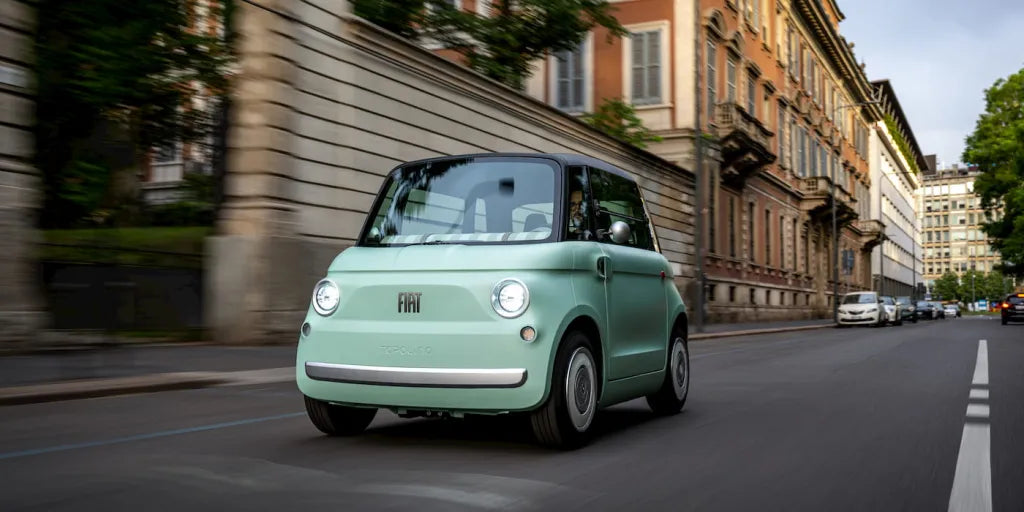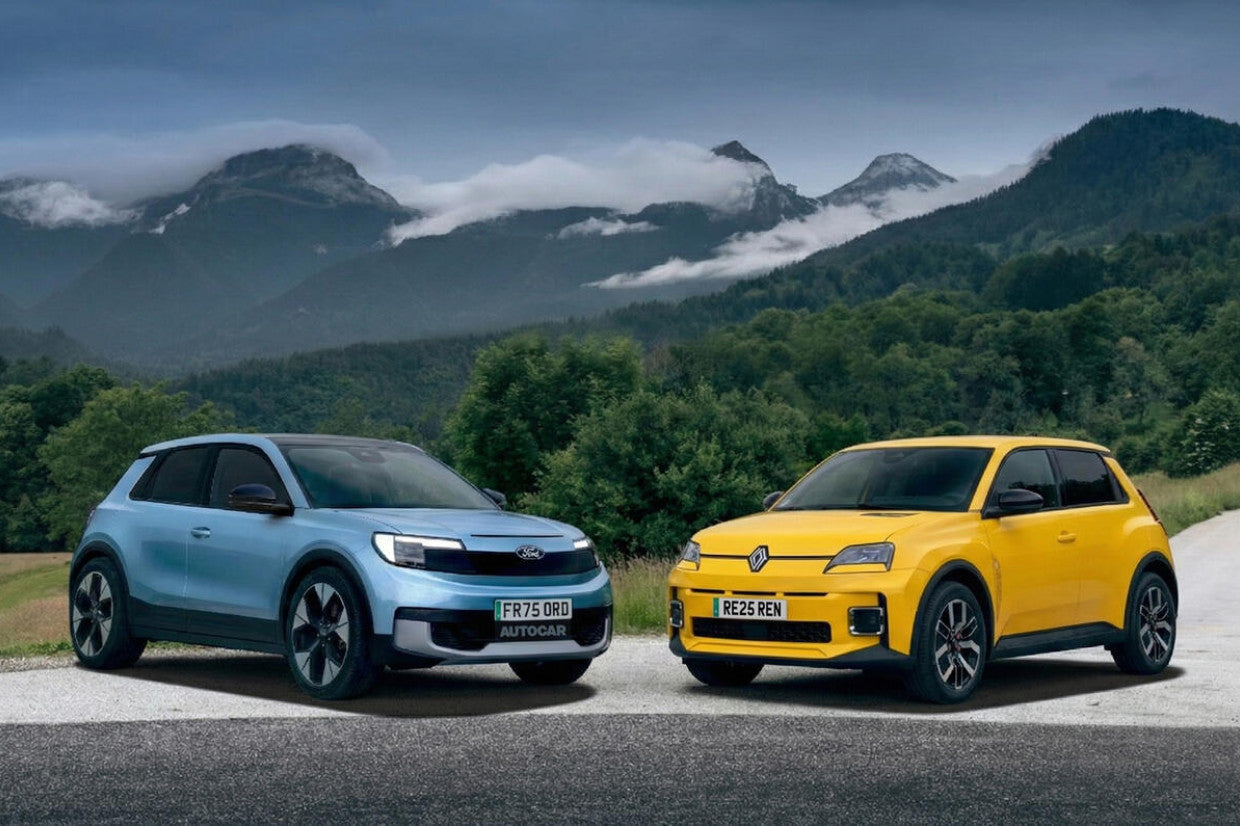Da Elektrofahrzeuge (EVs) immer fortschrittlicher und effizienter werden, überdenken Automobilhersteller das Zusammenspiel verschiedener Komponenten, um Ladevorgänge, Energieverbrauch und Gesamtleistung zu optimieren. Eine der wichtigsten, aber oft übersehenen Innovationen ist die ICCU ( Integrated Charging Control Unit ).
In diesem Artikel wird erklärt, was eine ICCU ist, wie sie sich von herkömmlichen Ladekomponenten für Elektrofahrzeuge unterscheidet und warum sie für die Zukunft der Elektrofahrzeugtechnologie eine entscheidende Rolle spielt.
Was ist eine ICCU in einem Elektrofahrzeug?
Die Integrated Charging Control Unit (ICCU) ist eine Komponente der nächsten Generation in Elektrofahrzeug-Antriebssträngen, die mehrere Ladefunktionen in einem einzigen, kompakten System vereint. Konkret integriert die ICCU typischerweise Folgendes:
-
DC-DC-Wandler
Durch die Zusammenführung dieser Systeme vereinfacht die ICCU die elektrische Architektur des Elektrofahrzeugs, reduziert Gewicht und Verkabelung und ermöglicht bidirektionales Laden .
Herkömmliche Ladesysteme vs. ICCU
In den meisten heutigen Elektrofahrzeugen sind das Bordladegerät , der DC-DC-Wandler und die Ladesteuerungslogik in separaten Modulen untergebracht. Das bedeutet:
-
Mehr Platzbedarf im Fahrzeug
-
Erhöhte Fertigungskomplexität
-
Höhere Kosten für Produktion und Wartung
-
Langsamere Reaktion bei der Verwaltung des Leistungsflusses zwischen Komponenten
Die ICCU ersetzt diese fragmentierte Architektur durch eine Komplettlösung . Sie übernimmt sowohl das AC- als auch das DC-Laden , wandelt Hochspannungsstrom in die für Hilfssysteme benötigte Niederspannungsleistung um und verwaltet die Ladeprotokolle.
Schlüsselfunktionen der ICCU
-
AC-Lademanagement
Wandelt Wechselstrom von Heim- oder öffentlichen Ladegeräten der Stufe 2 in Gleichstrom um, um die Batterie aufzuladen. -
DC-Schnellladesteuerung
Koordiniert den Hochspannungs-Gleichstromfluss von einem Schnellladegerät direkt in die Batterie, oft mit Leistungen über 150 kW. -
DC-DC-Umwandlung
Reduziert die Hochspannung der Batterie (400–800 V), um 12-V-Komponenten wie Lichter, Infotainmentsysteme und Sicherheitssensoren mit Strom zu versorgen. -
Bidirektionales Laden (V2L, V2G)
Fortschrittliche ICCUs ermöglichen den Energiefluss zum und vom Fahrzeug. Dies unterstützt Funktionen wie:-
Vehicle-to-Load (V2L) : Stromversorgung von Geräten oder Werkzeugen über die Batterie Ihres Elektrofahrzeugs.
-
Vehicle-to-Grid (V2G) : Rückspeisung von Strom ins Netz.
-
Warum die ICCU-Technologie wichtig ist
1. Verbesserte Ladeeffizienz
ICCU-Einheiten können den Energieverlust bei der Energieumwandlung reduzieren . Das bedeutet:
-
Schnellere Ladezeiten
-
Weniger Wärmeentwicklung
-
Verbesserte Akkulaufzeit
2. Vereinfachte Fahrzeugarchitektur
Durch die Integration mehrerer Systeme reduzieren ICCUs:
-
Platz- und Gewichtsbedarf
-
Verdrahtungskomplexität
-
Fehlerquellen
Dies hilft den Herstellern , kompaktere und kostengünstigere EV-Plattformen zu produzieren.
3. Unterstützung für bidirektionales Laden
ICCU ist ein zentraler Wegbereiter für V2X-Funktionen (Vehicle-to-Everything) . Angesichts der zunehmenden Dynamik des Energienetzes wird die Nutzung von Elektrofahrzeugen als mobile Energiespeicher eine entscheidende Rolle spielen:
-
Notstromversorgung
-
Spitzenlastausgleich
-
Integration erneuerbarer Energien
4. Kostensenkung und Skalierbarkeit
Die Verwendung eines einheitlichen Moduls bedeutet geringere Herstellungs- und Reparaturkosten , was besonders wichtig ist, da Elektrofahrzeuge weltweit verbreitet sind. Dies trägt auch zur Standardisierung von Plattformen für verschiedene Fahrzeugtypen bei.
Was ICCU für die Zukunft von Elektrofahrzeugen bedeutet
Da immer mehr Elektrofahrzeuge auf die Straße kommen, wird der Bedarf an schnelleren, intelligenteren und flexibleren Ladesystemen immer größer. ICCUs spielen für diese Entwicklung eine zentrale Rolle.
In den kommenden Jahren wird von den ICCUs Folgendes erwartet:
-
Unterstützt sogar noch höhere Spannungen (z. B. Systeme mit über 900 V)
-
Ermöglicht eine nahtlose Integration des kabellosen Ladens
-
Ermöglichen Sie eine breite Einführung von V2G und machen Sie Elektrofahrzeuge zu einem Teil eines verteilten Energienetzes
Abschließende Gedanken
Die Integrated Charging Control Unit (ICCU) ist mehr als nur eine praktische Funktion – sie ist eine grundlegende Technologie für die Zukunft der Elektromobilität. Durch die Kombination mehrerer Systeme in einem einzigen intelligenten Modul verbessern ICCUs die Effizienz, senken die Kosten und eröffnen neue Möglichkeiten wie Vehicle-to-Grid und ultraschnelles Laden.
Für die Verbraucher bedeutet dies schnellere, intelligentere und zuverlässigere Elektrofahrzeuge . Für den Planeten ist es ein Schritt näher an ein saubereres, widerstandsfähigeres Energiesystem.
Empfohlene Lektüre: ICCU-Ausfälle bei Elektrofahrzeugen: Was Besitzer wissen müssen







Aktie:
Wissenschaftler warnen vor nächtlichem Aufladen von Elektrofahrzeugen zu Hause
ICCU-Ausfälle bei Elektrofahrzeugen: Was Besitzer wissen müssen